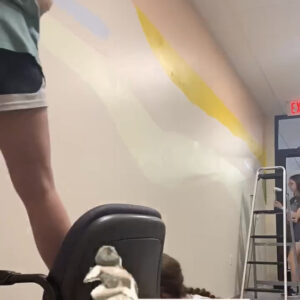On Sept. 14, the Wall Street Journal released a story on the in-depth study Facebook conducted about Instagram. Facebook shared their research on how toxic Instagram has become to teenage girls.
The study is still being processed, and Facebook has decided not release the full capacity of their research.
The Wall Street Journal said specifically Instagram, not social media in general, has a negative impression on the mental health and body image of teenagers. The study focused on teenage girls, but the research also applies to groups outside of this focus.
Students from Oklahoma Christian University have noticed the varying effects of social media use. Junior Danica Hammock said she sees why social media, especially Instagram, can have varying effects on the younger generations.
“In regards to me, it means I’m hesitant to post any opinions about myself online or even vocalize certain beliefs or feelings due to fear that I’ll lose any sense of respect or even some friendships because of them,” Hammock said.
According to a Forbes article regarding this research, “more than 40% of Instagram’s users are 22 years old and younger, and are vital to the company’s roughly $100 billion annual revenue.” The Wall Street Journal highlighted how Instagram is in a position to continue impacting the younger generation.
For some students, views on Instagram shift after going to college. Sophomore Chasity McMahan said she felt the social pressure while using Instagram.
“Sometimes I would even see my friends do things without me which caused my mental health to be so bad,” McMahan said. “I started hating myself because I was comparing myself to people with the way I looked and how many friends other people had that I didn’t.”
Karina Newton, the head of public policy for Instagram, made sure to make both the positive and negative sides are known in her blog post.
“The internet has drastically increased how many people we all connect to, and how much information we consume,” Newton said. “As a society, we’re working out how to process these changes, and what’s right for each of us individually.”
McMahan said Instagram helped her get to know more people in college, but she still finds herself in the midst of comparison.
“In college it seems like people have their life together and know exactly what they want to do and how they want to do it,” McMahan said. “Sometimes it makes me feel like I’m not a real adult’ enough.”
Facebook is also looking into creating a new social media platform for children under the age of 13. Hammock said she thinks it will probably be difficult to control what content children will view on this platform.
“Don’t get me wrong, it’s great for kids to stay in the loop about what is going on in the world,” Hammock said. “But they’re still kids that don’t need to face some of the scary things life throws at them just yet.”
Instagram sent out a blog post on March 17 saying they will make their platform safer for the community of younger users. As a student in college, McMahan said this could open an unintentional avenue for the younger generations.
“I personally don’t think kids that young should have social media but that’s just because there are always some types of predators online,” McMahan said. “If it was closely monitored and it allowed kids to get in contact with their friends in their area it might actually be good for them.”
While in college, awareness of platforms like Instagram and Facebook might improve some aspects of the college experience. However, using platforms like Instagram can also lead to unintended consequences.
“I see it much more as a tool to manage my long distance friendships as well as a space that many individuals use to be socially active within the culture,” Hammock said. “They want to be and make a change instead of just posting about what they’re eating or a weird selfie.”
Oklahoma Christian uses Instagram as a resource to share news on campus, promote events and highlight students. The Wall Street Journal’s exploration into Facebook’s study will allow students on campus to understand what to look for in social media as well as how it can be of use.















Be First to Comment